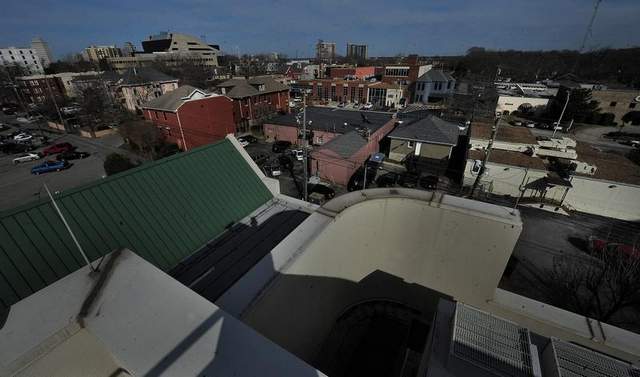The National Trust for Historic Preservation will name Music Row a national treasure at a press conference on Monday morning in a move that gives even more momentum to the effort to protect the famous music industry corridor.
In a press release, the Washington, D.C.-based nonprofit organization said it selected Music Row because of its "central importance to Nashville's identity as Music City, U.S.A. and the strong desire to preserve it as a cornerstone of America's cultural and music heritage."
The fate of Music Row, which began housing established music businesses 60 years ago, has been a hot topic of conversation in Nashville ever since the Studio A complex came under fire for potential redevelopment last year. The studio was ultimately saved, but a broader discussion about Music Row has taken center stage and figures to be an issue in the upcoming Nashville mayor's race.
The National Trust announced the newly formed Music Industry Coalition with Nashville Mayor Karl Dean's office, the Metro Historical Commission, Historic Nashville Inc., the Tennessee Preservation Trust and the Nashville Convention and Visitors Corp. as its partners.
By naming Music Row a national treasure, the National Trust will research and document its history and develop strategic plans to ensure its sustainability, the organization announced.
"Music Row is the very definition of a national treasure. The sounds created here have echoed throughout the country for decades, earning it an unparalleled place in America's cultural life," said David Brown, executive vice president and chief preservation officer for the National Trust for Historic Preservation. "As a native Tennessean who grew up with a deep love of the sounds of Nashville, I am especially passionate about helping ensure the future of Music Row as a vibrant center of culture, economy and creativity."
The connection with the National Trust took place last year when Nashville rocker Ben Folds was in Washington to perform a concert and connected with the organization's general counsel Tom Mayes. It was Folds who went public with the fate of Studio A, and turned the issue into an international land-use saga.
"I remember meeting with Tom Mayes after one of my concerts in Washington, D.C., just days after I posted my first open letter of concern for Studio A," recalled Folds. "Tom had reached out to me to offer the support of the National Trust, the first such outreach by any organization for our cause. That meant a lot to me, and has since led to a great partnership for Music Row, for the people who make the music here, and for our city."
Music Row is home to recording studios, record labels, performance rights organizations, the Country Music Association, publishing companies and an array of other music businesses. Nearly 50 years ago, Chet Atkins, Owen Bradley and Harold Bradley built Studio A, which is the less famous companion of the adjacent RCA Studio B, which has already been preserved. The Quonset Hut, another internationally renowned studio, has also been saved.
The National Trust, which was chartered by Congress in 1949, is a privately funded nonprofit group.
American Express is the presenting partner of the national treasures program and has pledged $2 million to the National Trust to help promote and enable the preservation of cultural and historic places. Other national treasures include President Theodore Roosevelt's North Dakota ranch; Shockoe Bottom, which served as the slave center in Richmond, Va.; and the James River in Virginia.
Preserving Music Row is a conundrum because the corridor has no officially defined boundaries and consists of a hodgepodge of architecture, some of which is nondescript like the Studio A building. The real estate is also valuable as Music Row — spanning several blocks along 16th and 17th avenues — is near to the booming Gulch, Midtown and Belmont neighborhoods.
How do you preserve a business corridor where developers see more value as residential, mixed-use or hotel developments than music businesses? The Music Industry Coalition (MIC) formed in the wake of the Studio A debate and the new group of Music Row executives, property owners and other stakeholders have been pondering that question.
Reach Nate Rau at 615-259-8094 and on Twitter @tnnaterau.


